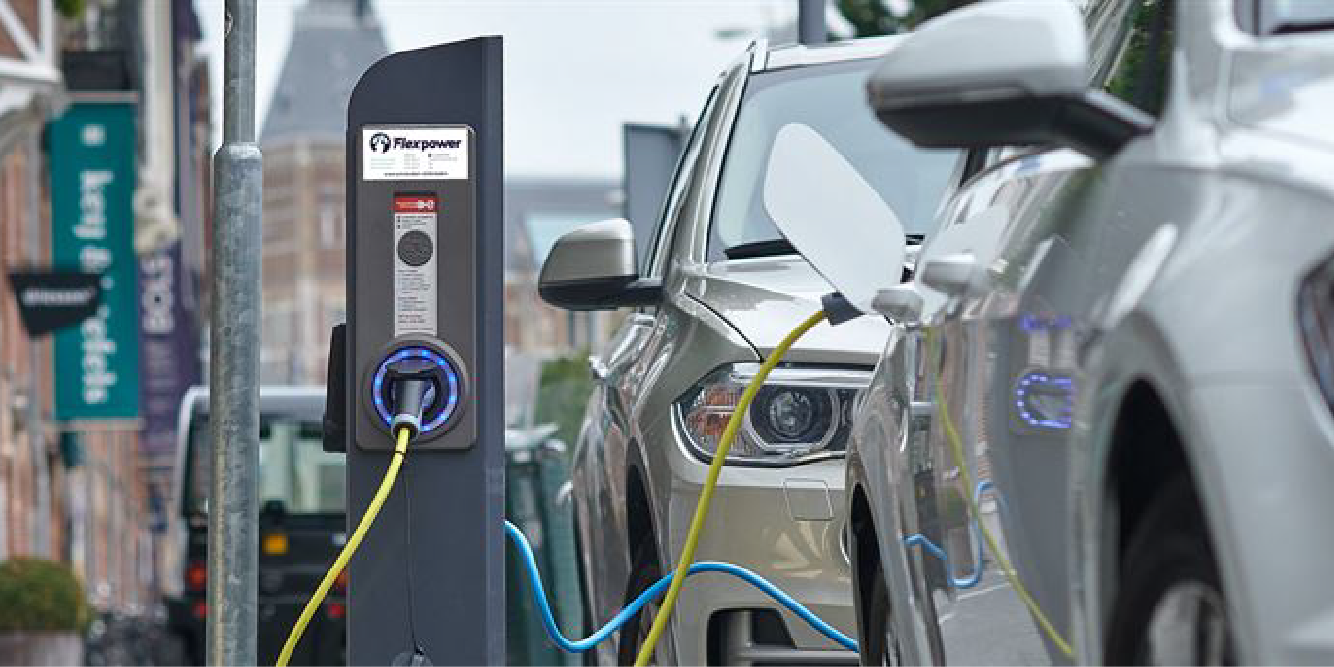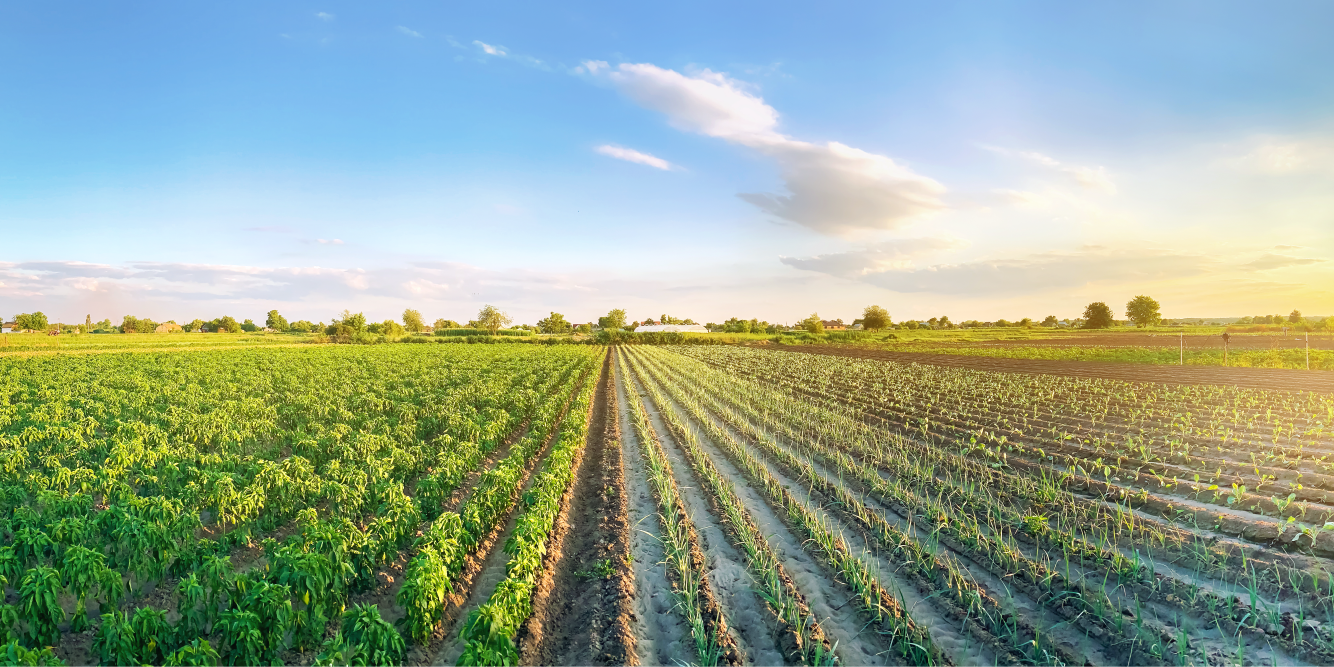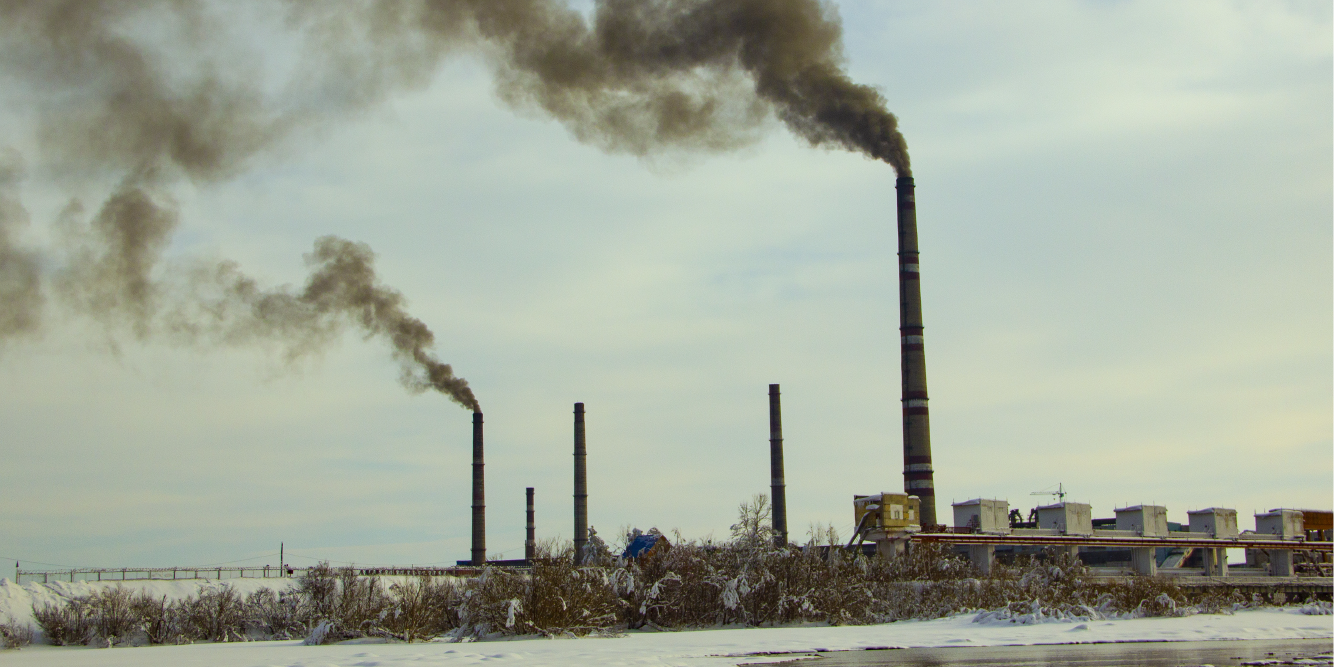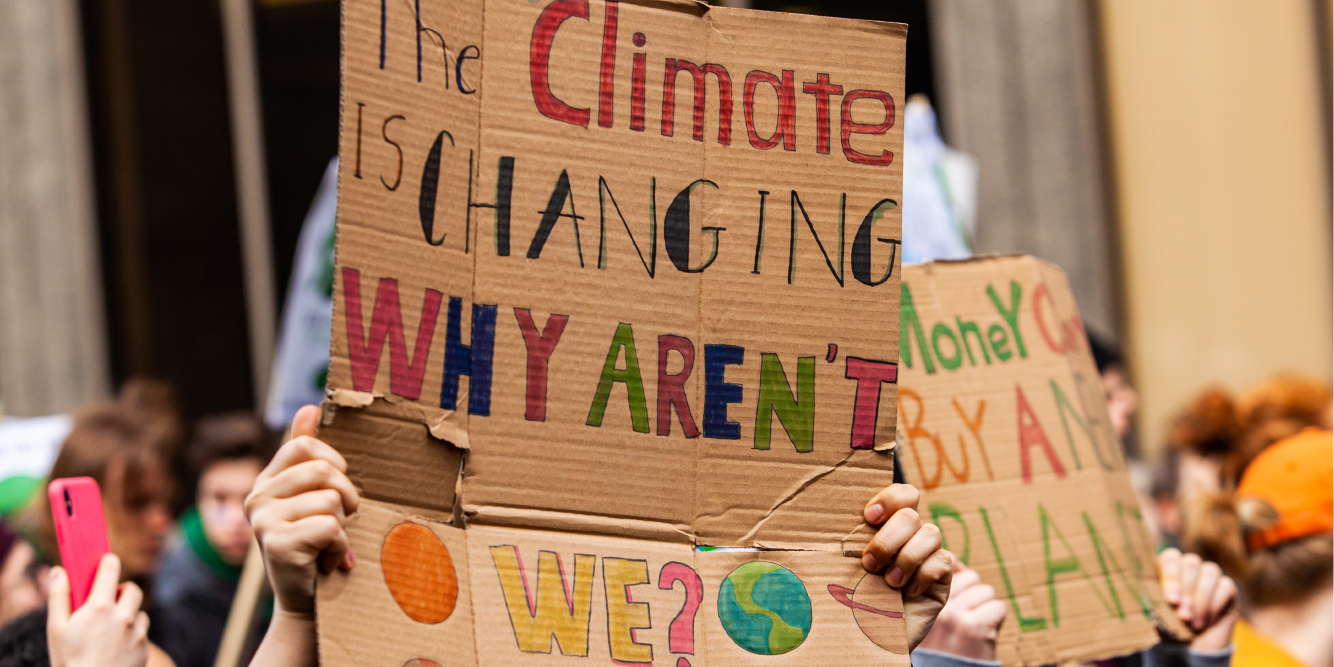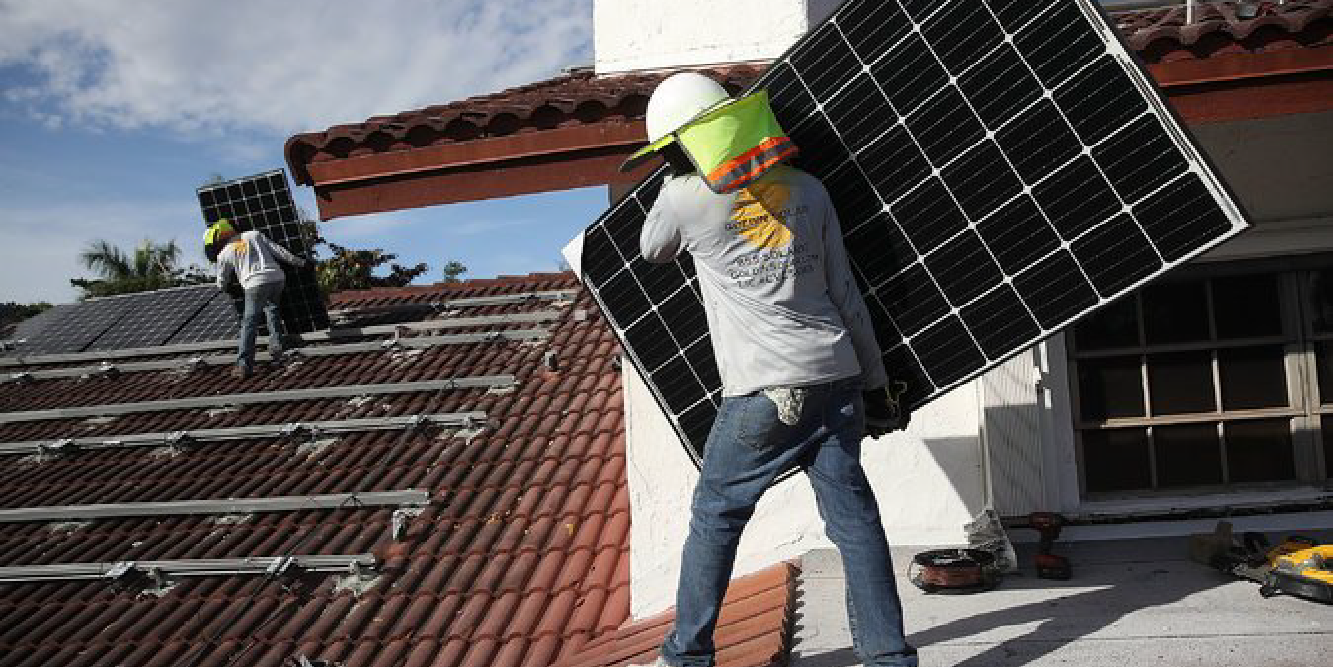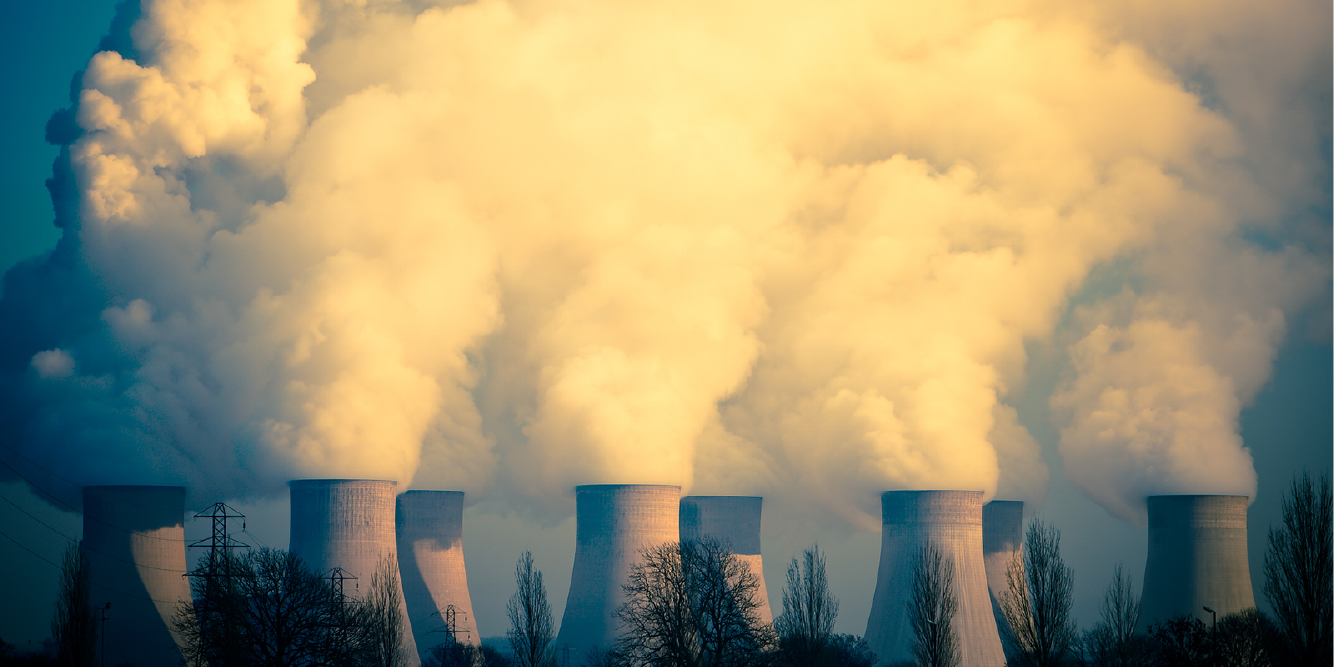Just Transition
Those most affected should benefit first from the transition
Communities that have suffered the worst adverse impacts from the extractive economy—particularly environmental justice communities, census tracts with high levels of poverty or unemployment, and indigenous communities—should be prioritized for the benefits of the clean-energy transition. The transition should be used as an opportunity to build household and community wealth in these communities, which historically have had wealth and resources extracted from them. This means policies such as the following:
- When recovering from climate harms, prioritize providing support and assistance related to health, infrastructure, jobs, and economic recovery for the most affected communities and those with the least resources.
- As we transition electric power generation from fossil fuels to renewable energy, prioritize—and provide public funding for—community owned and controlled renewable energy in frontline communities, including rural communities that are vulnerable economically through economic and social transitions. Ensure that rural communities that are financially dependent on leasing land for fossil fuel extraction can find alternative income sources that are not harmful to people and the environment, such as leasing land for renewable energy generation.
- As we redesign buildings, including homes, public buildings, and commercial buildings, to be more energy efficient, prioritize households and communities with the greatest needs, such as frontline and indigenous communities, residents of low-income housing, communities with a high energy burden, traditionally economically disadvantaged communities, manufactured home communities, and rural communities.
- As we transition the transportation system from gasoline-burning cars, prioritize and fund electrified public transit accessible to all, electric vehicle charging infrastructure, and adequate rebates to make personal electric vehicles affordable in those communities that have borne the largest historical burden from transportation-related pollution or that face a lack of adequate transportation choices.
- As we transform the food and agriculture system, ensure that farm workers earn living wages, work in safe and healthy conditions, and have collective bargaining rights. Prioritize access for communities that lack adequate access to nutritious food.
- Ensure affordable electricity, housing, transportation, water, and food through policy and direct government spending.
- In these and other areas, ensure that people in affected communities have mechanisms to determine the needed investments in their own communities instead of receiving solutions imposed from outside.
Justice for extraction-dependent workers and communities
Many communities, even while they face adverse environmental and health impacts from extractive and other contaminating industries, are dependent on fossil-fuel industries for their local economy and tax base. It is not just the workers in fossil fuel industries who are affected, but small businesses that depend on sales to the fossil-fuel workers, and public sector workers such as school teachers, firefighters and emergency personnel, utility workers, who depend on tax revenues from the fossil-fuel facilities. These are also communities where a just transition must prioritize wealth-building. Transition plans must include:
- Viable pathways to a healthy, resilient local economy for all communities and workers, prioritizing extraction-dependent communities and workers.
- Funding for local communities to implement their visions for resilience.
- Guaranteed income and benefits for at least three years—preferably five years—for all affected workers.
- These mechanisms must be initiated before economic disruption begins.
Unionization rights
The transition must strengthen and protect the right of all workers to organize, unionize, and bargain collectively, free of coercion, intimidation, or harassment.
Job quality
The transition must create inclusive, good-paying, family-sustaining jobs with adequate health, retirement, and other benefits and protections for workers’ health and safety. Quality jobs should provide much more than enough remuneration for survival. They should provide opportunities and skills training for households and communities to build wealth for greater resilience. They also should incorporate training to ensure that workers have the knowledge and skills needed to participate fully in the transitioning economy.
Job access
The transition should include local, targeted hiring strategies, as well as specific goals for pre-apprenticeship and apprenticeship programs.
Federal jobs guarantee
To ensure that the needed transition does not result in economic dislocation and large-scale unemployment, there should be a federal jobs guarantee ensuring that everyone who is able and willing can get meaningful work.
Benefits should flow to workers as well as community members who have been chronically unemployed and underemployed, the undocumented, the formerly incarcerated, indigenous peoples, and all other populations that have not benefited from or have not been able to fully participate in the extractive economy.
Rural Investment
Rural areas are characterized by low density of population, homes, and businesses per square mile and frequently have limited infrastructure and access to key services. Rural communities often experience reduced local tax base and inadequate public spending, and their residents are further burdened by increased spending and travel to access basic and critical services such as healthcare.
- While these geographies may be high in greenhouse gas impacts from resource extraction or agriculture (grazing or agribusiness monocropping), they may also be rich in potential for carbon sequestration, from both forests and agriculture, offering great opportunities for mitigation with the right incentives.
- More resources and infrastructure need to be appropriated to prepare and support vulnerable rural communities with emergency preparedness, recovery, and restoration. A just transition for rural communities must invest in rural educational attainment, provide universal rural broadband access and job skills training, and support rural prosperity.



